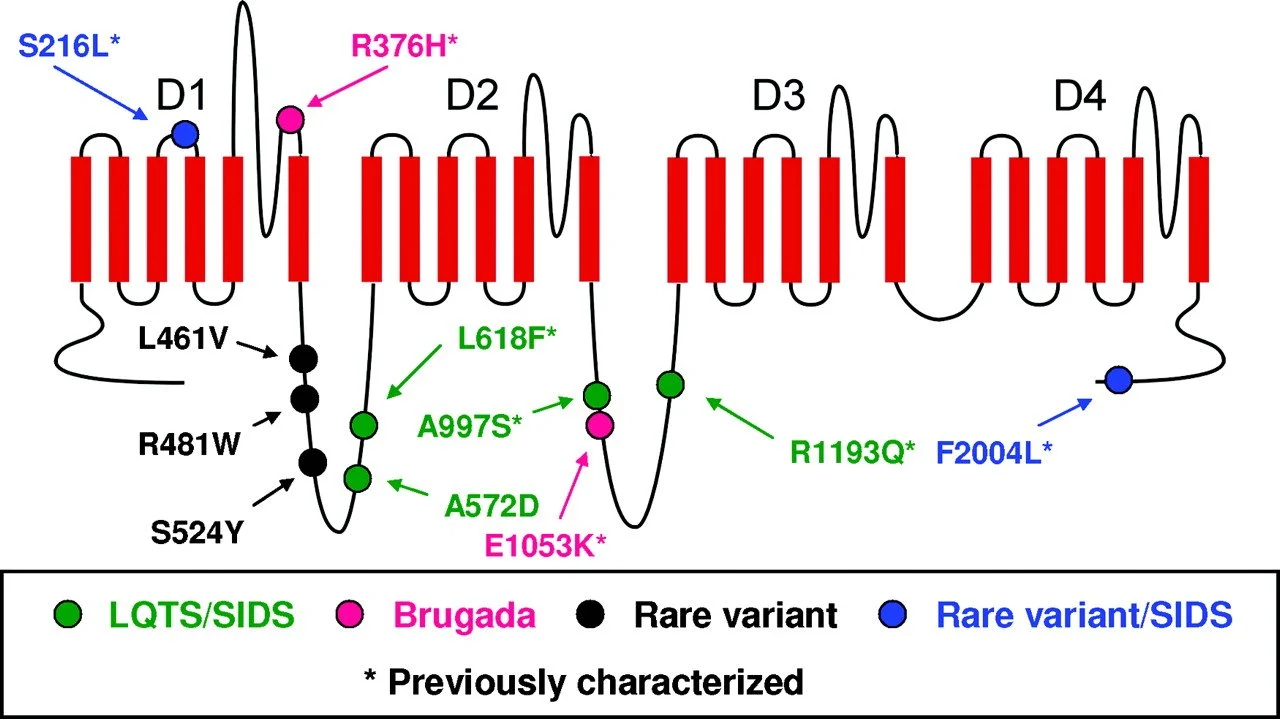SCN5A and other genes affected in Brugada syndrome
Brugada syndrome is a genetic heart disorder that can lead to irregular heart rhythms (arrhythmias) and an increased risk of sudden cardiac death. It is primarily caused by mutations in certain genes that affect the sodium ion channels in the heart. The most common genes associated with Brugada syndrome are SCN5A, which encodes a sodium channel protein, and GPD1L, which affects the sodium current in heart cells.
The SCN5A gene mutation is the most common and is found in approximately 15-30% of individuals with Brugada syndrome. Mutations in other genes, such as CACNA1C, CACNB2, SCN1B, SCN2B, and SCN3B, have also been associated with Brugada syndrome, but they are less common.
It's important to note that Brugada syndrome is a complex condition influenced by both genetic and environmental factors, and not everyone with a gene mutation associated with Brugada syndrome will necessarily develop symptoms. The exact mechanisms by which these gene mutations lead to the characteristic ECG pattern and arrhythmias seen in Brugada syndrome are still the subject of ongoing research. If you suspect you or someone you know may have Brugada syndrome, it's crucial to consult a healthcare professional for a proper diagnosis and management.
The SCN5A gene encodes a protein known as the cardiac sodium channel alpha subunit. This protein plays a crucial role in the normal function of cardiac muscle cells (cardiomyocytes) and the heart's electrical conduction system. Specifically, the SCN5A protein forms sodium ion channels in the cell membranes of cardiomyocytes, which are responsible for controlling the flow of sodium ions into and out of the cells.
The flow of sodium ions through these channels is essential for initiating and propagating electrical signals within the heart. These electrical signals are responsible for regulating the contraction of the heart muscle and maintaining a regular heartbeat.
Mutations in the SCN5A gene can disrupt the normal function of sodium channels, leading to changes in the electrical activity of the heart. In some cases, SCN5A mutations are associated with inherited cardiac arrhythmias and syndromes, such as Brugada syndrome and certain forms of long QT syndrome. These conditions can increase the risk of abnormal heart rhythms (arrhythmias) and, in severe cases, sudden cardiac death.
Research into SCN5A and related genes continues to provide insights into the genetic basis of various heart disorders and is important for understanding their mechanisms and developing treatments. If you suspect you have a genetic heart condition or have a family history of such conditions, it's essential to consult a healthcare professional or a genetic counselor for proper evaluation and guidance.
Rare and disease-associated SCN5A variants in AF probands indicated by position within the sodium channel protein topology.
